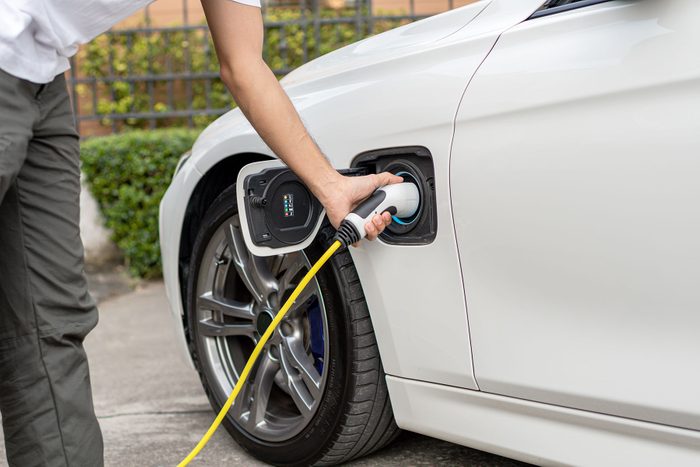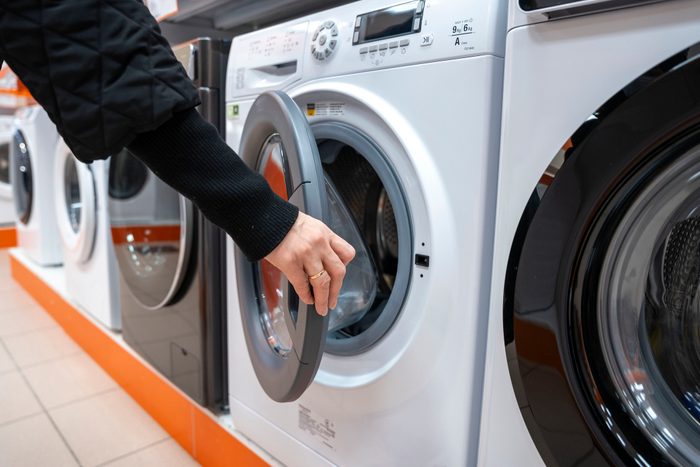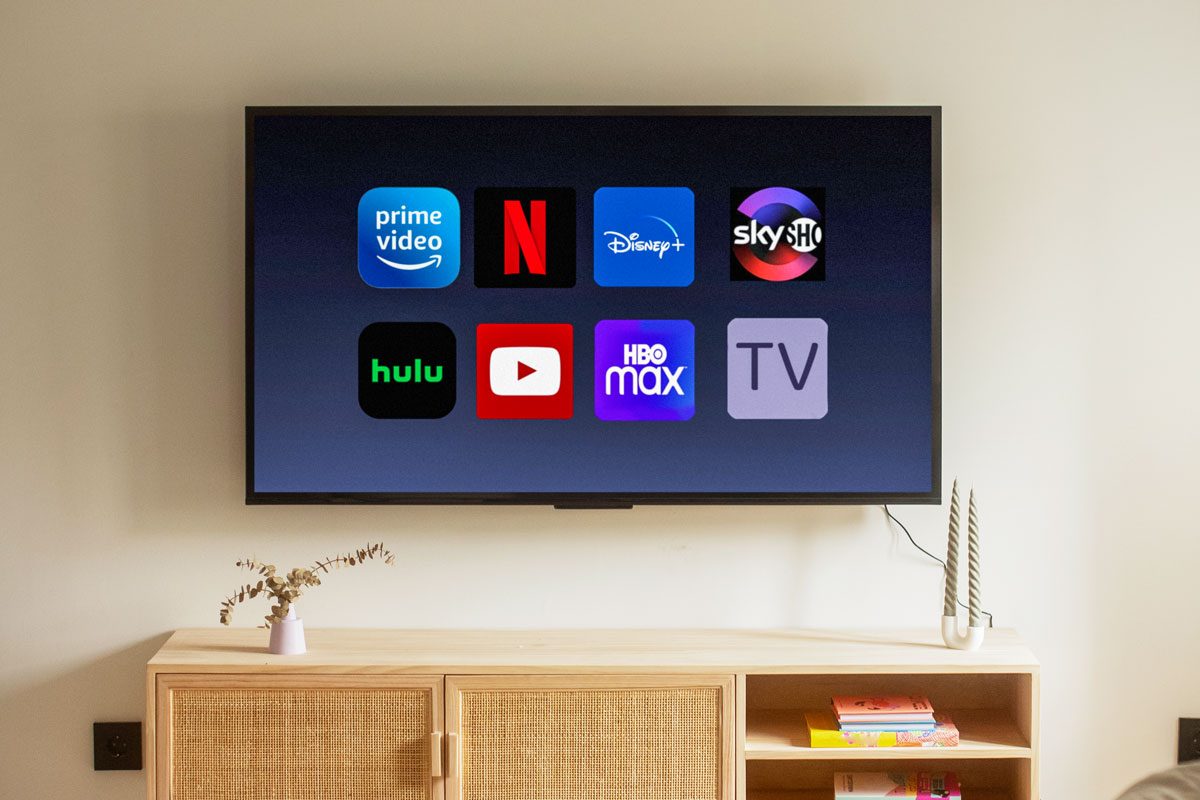
Good News! Money Experts Say These 7 Things Will Cost Less in 2025


Smartphones and laptops
“As manufacturers shift to more efficient production processes and older technologies get replaced, costs tend to decrease [for] tech items, like smartphones and laptops,” says Andrews. “I’ve seen this trend before—when demand balances with innovation, consumers benefit from competitive pricing.”
This trend has certainly borne out over the past few years: Prices for smartphones were 54.61% lower in 2024 versus 2019, according to the U.S. Bureau of Labor Statistics, and experts expect the decrease to continue.

Electric vehicles
More than half a million electric vehicles were sold in the United States in the first half of 2024—a 7.3% increase from the same period in 2023—which means demand is up for electric vehicles. Russ Johnson, a money-saving expert and the founder and CEO of Linx Legal, expects the prices of EVs to decrease as a result in 2025.
“As battery technology continues to improve and manufacturing scales up, we can expect EV prices to drop,” he says. “The supply of cheaper, more efficient batteries will help bring down the overall cost of electric vehicles, making them more accessible to consumers.”
But if you’re not ready to upgrade to an electric car, you can still keep more cash in your wallet by using the pros’ tips for saving more money on gas.

Appliances
Sometimes, it’s cheaper to buy a replacement appliance than to fix one, but that wasn’t always the case during the COVID-19 pandemic and the years that followed. Global supply-chain disruptions, including factory closures and customs delays, wreaked havoc on the appliance market, creating supply issues and jacking up prices well above the norm. But new technological advances in manufacturing should help bring prices down. “Over the next few years, the home-appliance market will likely see a price drop as manufacturers streamline production and pass on cost savings from supply-chain improvements,” says Johnson. “As technology improves further, basic refrigerators, ovens and dishwashers that don’t have all the bells and whistles should see even further price drops.”
Translation? While prices for appliances have remained relatively stable over the past year, they are now falling on a monthly basis and will continue to fall in 2025. In other words, this is the best time to buy household appliances.

Used cars
Similar to the issues with appliances, parts needed for the production of cars were hard to come by during the pandemic, slowing the production of new cars and causing used car prices to skyrocket. “After years of inflated prices due to supply-chain issues, I expect used car prices will stabilize and potentially decrease in 2025,” says Jeff Mains, founder of Champion Leadership Group. “Manufacturers are catching up with production demand, and as new cars flood the market, used vehicles will become more affordable again. For consumers, this will be a welcome relief after years of sticker shock.”
According to the CPI, used vehicle prices are already down 4.6% from a year ago and should continue to fall in the coming year. That makes 2025 a great time to buy a car.

Streaming services
Frustrated by rising prices to stream your favorite shows and movies? You may be charged less in 2025. “With increasing competition among streaming platforms, many services may lower their subscription fees or offer better value packages to retain customers,” says Johnson. “The sheer number of platforms competing for attention is likely to drive prices down, especially with consumers becoming more selective.”

Clothing
Fashionistas, rejoice! Higher costs of raw materials, shipping and labor in recent years caused many clothing brands to hike their prices to turn a profit. But that could change in 2025. “If global shipping costs remain stable and materials like cotton and polyester see steady supply, prices may come down slightly,” says Andrews. “Retailers may also offer aggressive discounts to clear excess inventory.”

Solar panels
Ready to go green to reduce your carbon footprint or at least save money on your energy bill? This may be your year. “Renewable energy products like solar panels and home batteries will continue to decrease in price,” says Mains. “This trend is fueled by government incentives, increased production scales and technological advancements. For example, innovations in battery storage and solar cell efficiency are driving costs down while demand rises. It’s a win-win for consumers looking to save on long-term energy costs.”
Why trust us
At Reader’s Digest, we’re committed to producing high-quality content by writers with expertise and experience in their field in consultation with relevant, qualified experts. We rely on reputable primary sources, including government and professional organizations and academic institutions as well as our writers’ personal experiences where appropriate. We verify all facts and data, back them with credible sourcing and revisit them over time to ensure they remain accurate and up to date. Read more about our team, our contributors and our editorial policies.
Sources:
- U.S. Bureau of Labor Statistics: “Consumer Price Index Summary”
- Holly Andrews, managing director of KIS Finance; email interview, Dec. 3, 2024
- Russ Johnson, founder and CEO of Linx Legal; email interview, Dec. 3, 2024
- Jeff Mains, founder of Champion Leadership Group; email interview, Dec. 3, 2024




















